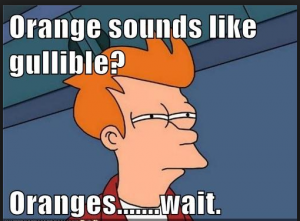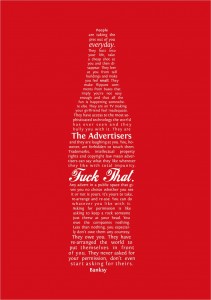
Advertising and Marketing is sales. It’s not one-on-one sales, it’s sales via a brochure, a radio spot, a tv ad or a billboard, but it’s sales. It convinces a large group of people to buy a service or product through the story conveyed via the chosen marketing medium.
We’ve used stories to help sell ideas, products, services, political movements, revolutions, uprisings and everything else from time immemorial. E.g. The story of a fruit vendor who immolated himself led to the Arab Spring, Dove uses Testimonials (stories) to prove and build trust that their product moisturizes skin, Coke shows us stories where people “Enjoy Coca-Cola”, Axe shows us stories where before using the product the protagonist couldn’t secure a date but after using it he has the “Axe Effect”.
It isn’t just CPG products – Car companies regularly use stories of status or adventure, Politicians use Joe the plumber or Mary the single mom working 2 jobs… Everyone uses it to pitch and sell an idea.
The length of the story never really mattered it was always about the content, but in order to establish a story one needs a little time to build and weave the message into the story. There’s been a concise-ing of the story in the past 50 years or so. Before the print medium most stories were told via verbal form and were one-to-one or one-to-many recitals.
With the advent of print we told a sales story via long copy, but then long copy died because we could tell a story in a shorter period of time through an image and supplementary body copy.
Then came the TV spot and we told stories in 30 seconds. Now we have Social Media and it’s ever shrinking format 15 seconds on instagram vs. 6 Seconds on Vine, From status updates of 140 characters to hashtag’s its all taking a toll on the quality of the story.
As marketers ask themselves how to fully utilize the reach and power of new media and technology, the biggest obstacle will be how to tell a convincing story in this ever shrinking format.
Some would argue that in a short attention span generation this is not a concern. I would argue the attention wanders only when the content is boring, the same consumers we say have small attention spans tend to spend a lot of time on things they like e.g. video games, blogs that interest them etc. If your content speaks to them they will read it / watch it / hear it / interact with it.
Moral of the story: We’ll always need a story to sell a service or product and you’ll always need a little time to craft a good story that sells.








